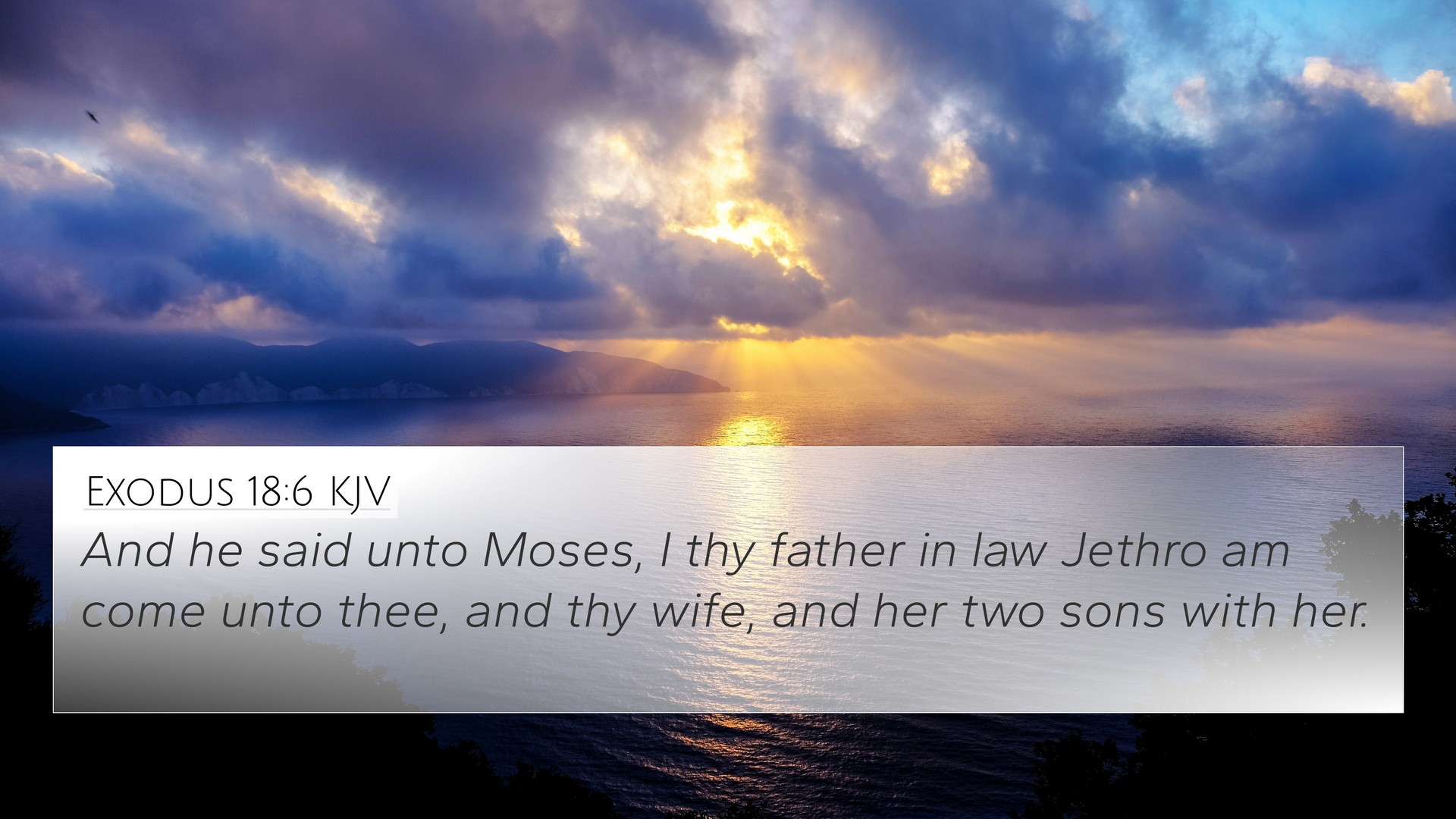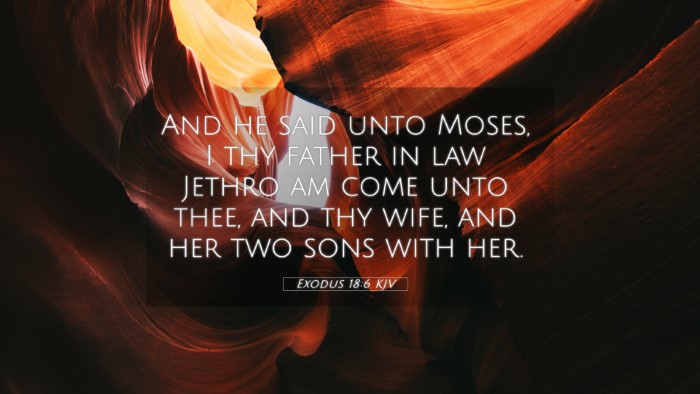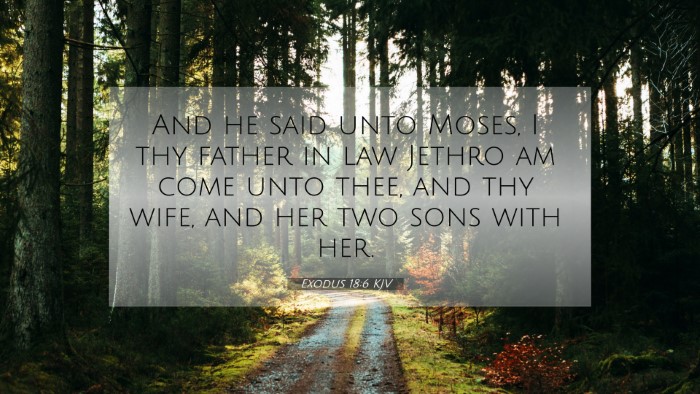Understanding Exodus 18:6
Verse Context: Exodus 18:6 states, "And when Moses’ father-in-law saw all that he did to the people, he said, What is this thing that thou doest to the people? why sittest thou thyself alone, and all the people stand by thee from morning unto even?" This verse unfolds an interchange between Moses and his father-in-law, Jethro, who observes the overwhelming demands placed upon Moses as the leader of the Israelites.
Meaning and Insights from Commentaries
This verse serves as a critical moment not only in Moses' leadership but also in the establishment of effective governance among the Israelites.
Insights from Matthew Henry's Commentary
Matthew Henry highlights the importance of delegation in leadership. Jethro's observation prompts a vital discussion on the need for shared responsibilities. He notes that overexertion can lead to fatigue and inefficiency, suggesting that leaders must learn to balance their burdens by involving others. Jethro's concern for Moses reflects a broader principle of wise counsel in leadership.
Insights from Albert Barnes' Commentary
Albert Barnes emphasizes the significance of Jethro's wisdom. He interprets Jethro's question as a challenge to Moses' solitary method of leadership. The implication is that Moses was likely overwhelmed, and Barnes suggests that this moment was pivotal for Moses to rethink his approach and incorporate a more structured system of governance.
Insights from Adam Clarke's Commentary
Adam Clarke explores the notion of community within leadership. He posits that Jethro's guidance was meant to establish a system to manage social and judicial matters among the people. By addressing Moses' lonely management, it indicates the need for collaboration and community involvement, reinforcing the idea that effective leadership is not a solitary journey.
Cross-References and Thematic Connections
The verse of Exodus 18:6 connects significantly with several other scriptures, providing a rich tapestry of related themes. Below are 8 cross-referenced verses that elucidate its meaning:
- Exodus 18:17-19 - Jethro’s advice on establishing a system of leaders to assist Moses in judging the people.
- Numbers 11:14-17 - Moses expresses his burden of leadership, and God advises him to select elders to share the weight.
- Proverbs 11:14 - Highlights the necessity of counsel and multiple advisors in decision-making.
- Acts 6:1-4 - The apostles allocate responsibilities among deacons to ensure effective ministry, paralleling Jethro’s counsel.
- 1 Corinthians 12:12-27 - This passage speaks about the body of Christ needing various parts to function effectively, similar to community roles in governance.
- 2 Timothy 2:2 - Paul instructs Timothy to entrust teachings to faithful men, emphasizing the importance of sharing leadership duties.
- Galatians 6:2 - Encourages believers to bear one another's burdens, reinforcing the communal aspect of leadership.
- Hebrews 13:17 - Advises believers to obey and submit to their leaders, underlining the need for structured leadership.
Thematic Bible Verse Connections
Exodus 18:6 fosters connections across various biblical themes, such as:
- Leadership and Delegation: The importance of sharing responsibilities for effective governance.
- Wisdom and Counsel: Seeking advice and being open to constructive criticism.
- Community Involvement: The significance of collective effort in achieving God's purposes.
- God's Provision: How God raises leaders and supporters within the community.
Conclusion
Exodus 18:6 serves as a profound reminder of the limitations of individual leadership and the power of collaboration. Through Jethro’s wise counsel, we see a biblical precedent for shared responsibilities, effective governance, and the value of community input in leadership.


